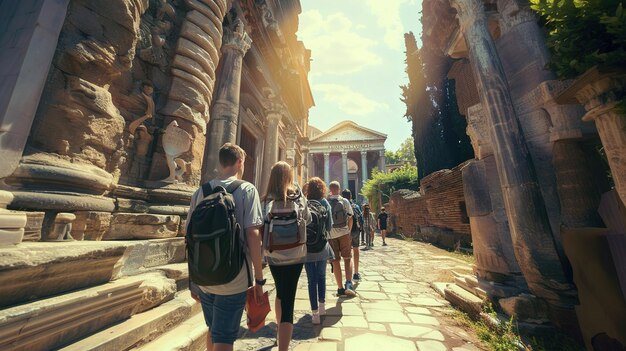A few years back, I revisited Costa Rica, the place where I first caught the travel bug. I was particularly excited to see Manuel Antonio National Park again, with its lush jungles, secluded beaches, and diverse wildlife. However, my excitement quickly turned to dismay. The once tranquil park was now overrun with tourists, fancy resorts lined the road to town, and the wildlife had disappeared. This was my first encounter with "overtourism," a term used to describe the overwhelming influx of tourists that a place’s infrastructure can’t handle.
This issue isn’t new. In fact, it’s been making headlines recently as more and more destinations are pushing back against the flood of visitors. "Stay home! You’re no longer welcome!" they seem to be saying. I believe travel can be a force for good, fostering understanding and boosting local economies. But the rise of cheap flights and the sharing economy, coupled with an increase in Chinese tour groups, has led to overcrowding in many places.
I’ve seen it everywhere I go. The Palace of Versailles, once a peaceful place where I could film a video without interruption, is now packed with tour groups. Tulum, a once quiet Mexican town, is now filled with Westerners trying to turn it into the new Bali. Reykjavik’s main street is a sea of people, and the city’s roads are congested. And don’t get me started on the crowds in Prague, Barcelona, Paris, Venice, Edinburgh, the Gili Islands, Ko Lipe, Chiang Mai, and Queenstown.
While overcrowding is a byproduct of a globalized world where travel is more accessible, the things that make travel cheaper, like budget airlines and Airbnb, have also made it harder for destinations to cope with the influx of visitors. Now, places are starting to push back. Barcelona is limiting new hotels and cruise ships. Dubrovnik is considering capping the number of tourists. Chile and Ecuador are restricting the number of tourists to Easter Island and the Galápagos, respectively. Venice and Paris are trying to limit Airbnb and the number of tourists. Iceland wants to limit foreign property ownership. Amsterdam is trying to control partying in the city. Majorca has seen continuous protests against tourists.
I don’t think people intentionally try to ruin places. Most people just don’t think about the harm their actions can cause. That’s why education and initiatives to control tourism are so important. We need to find a balance between visitors and residents. Overtourism doesn’t benefit anyone. No one wants to visit a crowded place, and no one wants to live somewhere overrun with tourists.
Airbnb, for example, is a major problem. It started as a way for residents to earn extra money and offer travelers a more local experience. But now, real estate companies and property managers are buying up properties in city centers, reducing the supply of rental properties for locals, driving up prices, and forcing residents out. I’ve started only renting rooms in an Airbnb, so I know there’s a local benefiting from my stay.
Social media has also played a role in popularizing travel and making it more accessible. But it’s also led to overcrowding as everyone wants to recreate the experiences they see online. We need to balance our influence with responsible travel and educate our audiences to be better, more respectful travelers.
Here are some ways we can help mitigate the overtourism crisis:
- Skip Airbnb homes unless you’re sure you’re renting from a real person who’s just on vacation.
- Spread your travels around. Don’t just stick to the most popular areas.
- Visit in the shoulder season to avoid peak crowds and prices.
- Don’t eat in touristy areas. Find restaurants where locals eat.
- Be an informed traveler. Learn about your destination before you go.
- Don’t be a drunk idiot. Treat your destination and its residents with respect.
- Be environmentally friendly. Don’t waste resources.
Overtourism is a problem that can only be solved by both residents and tourists. We need to protect residents and destinations just as we would protect animals and the environment when we travel. We’re part of the problem, but we can also be part of the solution. The more responsible we act, the better it is for everyone involved.
